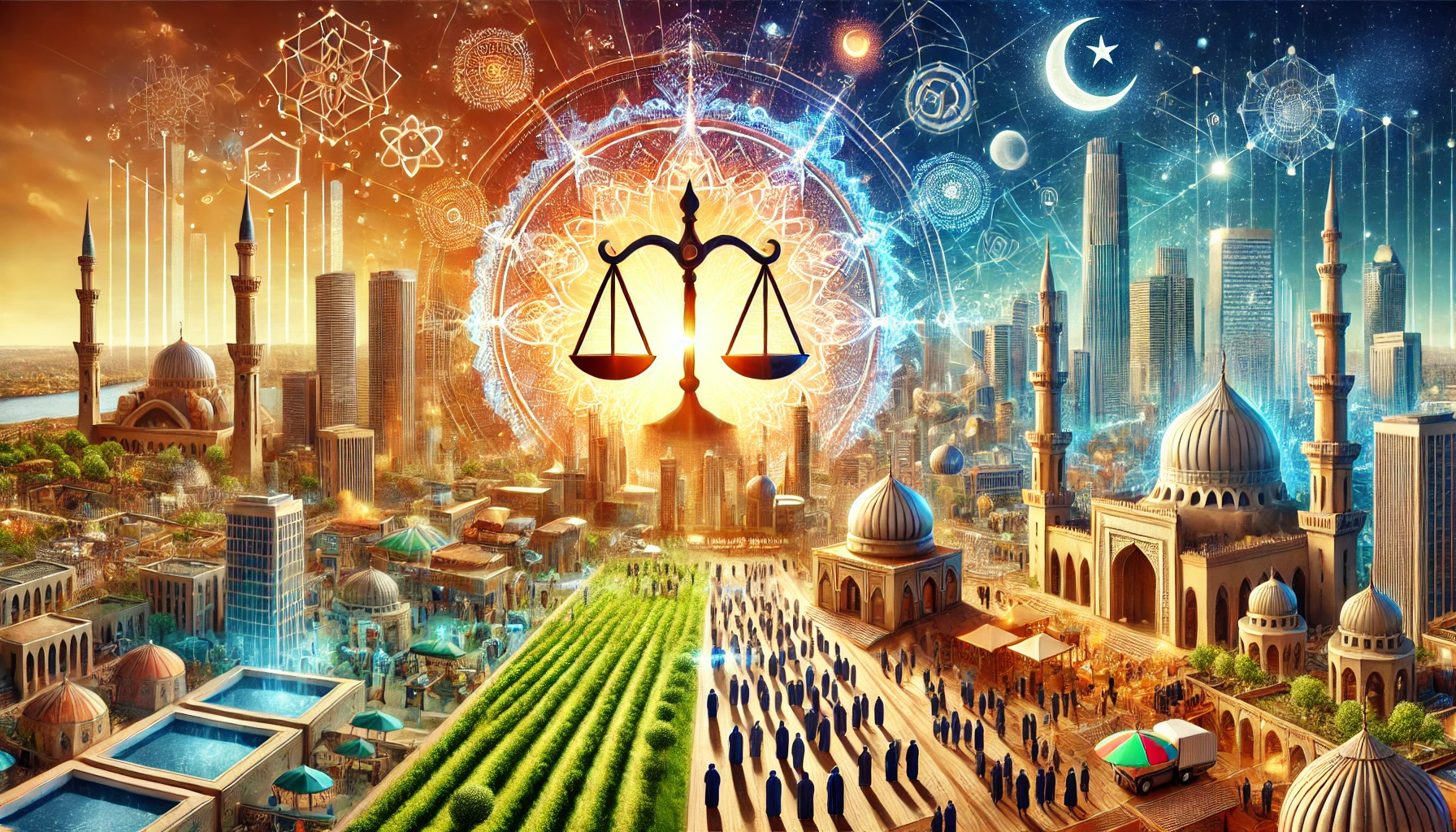The quest for a just and harmonious society has inspired generations of Muslim thinkers. Luminaries like Allama Iqbal, Maulana Azad, Dr. Israr Ahmed, and Abul A’la Maududi have envisioned frameworks for an Islamic system rooted in ethical governance. Their ideas resonate profoundly today, offering blueprints to address modern socio-political challenges and galvanize the youth toward meaningful reform.
Islamic Governance: A Timeless Blueprint
The vision of an Islamic system is anchored in three foundational principles: tawhid (oneness of God), risala (prophethood), and khilafa (caliphate). These principles emphasize justice (adl) and benevolence (ihsan), offering a moral compass for governance and societal organization. Unlike secular democracies, Islamic governance centers on God’s sovereignty, with human leaders serving as vicegerents committed to upholding divine principles.
This model provides clarity and consistency, prioritizing moral integrity over transient societal trends. It ensures that laws and policies reflect eternal ethical values rather than fluctuating public opinion.
Relevance in Modern Governance
In a world beset by corruption, inequality, and moral crises, the Islamic governance model offers a structured alternative. While democracies grapple with divisive partisanship and eroding trust, an Islamic state, grounded in immutable divine laws, fosters unity and stability. By prioritizing justice and accountability, it aligns governance with universal moral values, restoring faith in leadership.
For instance, countries like Sweden and New Zealand, often praised for their welfare systems and transparency, embody principles that resonate with Islamic values, such as social justice and accountability. However, Islamic governance goes further by integrating spiritual and moral dimensions into the fabric of society.
Economic Justice: A Solution to Modern Inequities
The world’s escalating wealth gap underscores the urgent need for economic justice. Islamic economics, with its emphasis on fairness, prohibits interest-based transactions that exacerbate inequality. The financial crises of recent decades have highlighted the fragility of conventional systems. In contrast, Islamic banking, rooted in risk-sharing and ethical investments, has gained global recognition, from Malaysia to the United Kingdom.
Zakat (charitable giving) ensures wealth redistribution, fostering economic equity and social welfare. This concept is particularly relevant today, as consumerism and materialism deepen societal divides. By institutionalizing zakat and promoting ethical entrepreneurship, we can address pressing issues like poverty, unemployment, and environmental degradation.
Addressing Social Fragmentation
Modern societies face rising social fragmentation, fueled by cultural relativism and the erosion of traditional values. Islamic governance offers a cohesive social framework by upholding family values, mutual respect, and ethical conduct. Measures like modesty, community-centered living, and the promotion of collective responsibility counteract youth delinquency, substance abuse, and the breakdown of community bonds.
For example, countries like Japan, known for their strong communal values, demonstrate how cohesive societies thrive. Islamic governance builds on such principles, fostering environments where individuals contribute to collective well-being while maintaining their moral compass.
Ethical Leadership and Accountability
The demand for ethical leadership is more urgent than ever. Islamic governance emphasizes merit-based leadership, prioritizing piety, competence, and a commitment to justice. Unlike modern political systems, which often succumb to lobbying and personal ambition, this model focuses on serving the community with sincerity and humility.
Historical examples, such as the leadership of Caliph Umar ibn al-Khattab, illustrate the transformative power of ethical governance. His administration was marked by transparency, welfare initiatives, and an unwavering commitment to justice, setting a standard for leaders today.
Learning from Historical and Contemporary Examples
Since the 20th century, Islamic governance has manifested in diverse forms. The Iranian Revolution of 1979 established a theocratic state, emphasizing social justice and resistance to imperialism. In contrast, Turkey under Recep Tayyip Erdoğan has sought to integrate Islamic values within a modern framework, navigating the challenges of globalization.
The Gulf Cooperation Council (GCC) states have leveraged Islamic finance to drive economic growth, while the Arab Spring highlighted both the thirst for justice and the complexities of societal transformation. In India, the rise of Hindu nationalism under Narendra Modi underscores the urgency of protecting minority rights and fostering inclusive governance. These examples reveal both the potential and the challenges of implementing Islamic principles in contemporary contexts.
Practical Steps for Implementation
- Justice System: Integrate sharia principles with modern legal frameworks to ensure fairness, rehabilitation, and deterrence, addressing crime with both ethical and practical rigor.
- Economic Reforms: Expand Islamic banking and microfinance initiatives to empower marginalized communities, fostering economic resilience and reducing dependence on exploitative systems.
- Education Reform: Develop curricula that blend modern science and technology with Islamic ethics, nurturing leaders who are both skilled and morally grounded.
- Social Welfare: Institutionalize zakat and waqf systems to create robust safety nets for the poor, reduce inequality, and foster communal solidarity.
- International Collaboration: Muslim-majority countries can unite to tackle global challenges like climate change, economic instability, and political oppression, guided by Islamic principles of justice, cooperation, and stewardship.
Addressing Misconceptions
Critics often portray Islamic governance as rigid or incompatible with pluralistic societies. In reality, it promotes consultation (shura), protects minority rights, and encourages ijtihad (independent reasoning) to adapt to evolving circumstances. These features ensure that Islamic governance remains dynamic, inclusive, and responsive to contemporary needs.
For instance, the Ottoman Empire’s millet system allowed religious minorities to govern themselves according to their own laws, exemplifying Islam’s commitment to pluralism and coexistence.
Conclusion
The vision of an Islamic system, as articulated by thinkers like Iqbal, Azad, and Maududi, offers a comprehensive framework for ethical governance and societal harmony. In an age of global crises—from wars and environmental challenges to rising inequality—their ideas provide a beacon of hope. They inspire a new generation to pursue justice, equality, and moral integrity. By gradually implementing these principles, we can pave the way for a brighter, more just world.
The youth, equipped with both modern knowledge and Islamic values, hold the key to this transformation. It is their energy, creativity, and resilience that will bring these timeless principles to life, forging societies that embody justice, compassion, and spiritual fulfillment.



